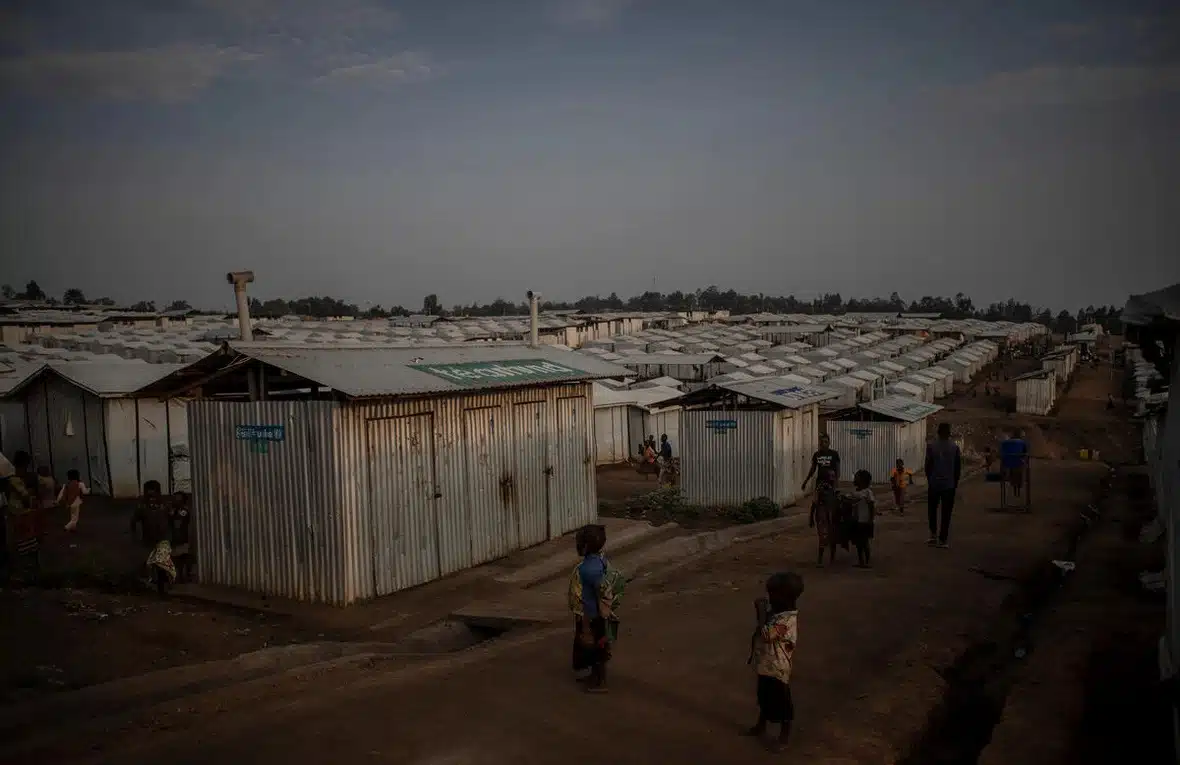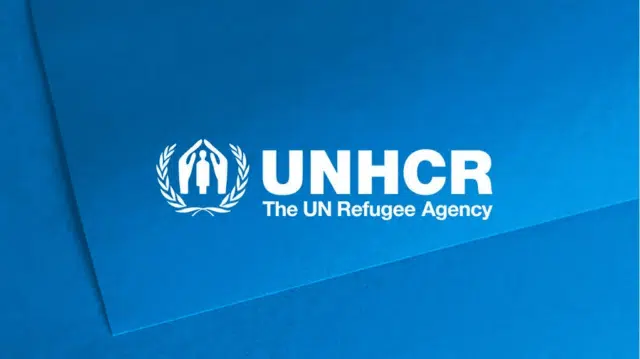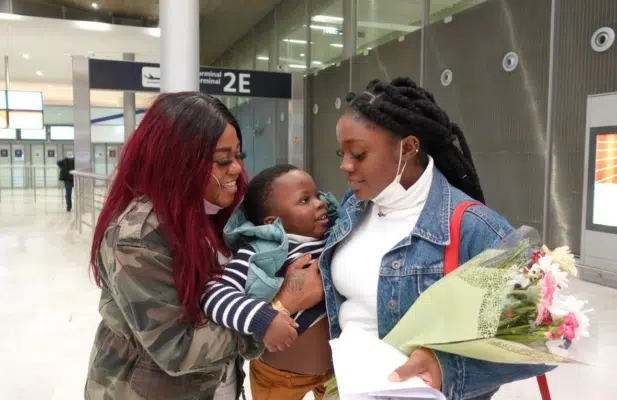
Kigonze camp in Bunia in the DRC’s Ituri province is sheltering 14,000 internally displaced people. More than 6.3 million people are internally displaced across the country. © UNHCR/Guerchom Ndebo
This is a summary of what was said by UNHCR Assistant High Commissioner for Protection, Gillian Triggs, to whom quoted text may be attributed – at today’s press briefing at the Palais des Nations in Geneva
GENEVA — Distressing trends are unfolding in eastern Democratic Republic of the Congo (DRC), where resurgent violence between non-state armed groups and government forces has reverberated across the provinces of North Kivu, South Kivu and Ituri.
As a result, 2.8 million people have been displaced across those provinces since March 2022. Among a litany of humanitarian law and human rights violations, civilians are being killed and tortured, while arbitrary arrests, looting of health centres and civilian homes, and the destruction of schools are also reported.
We are also particularly alarmed by increasing reports of sexual violence against forcibly displaced women and girls, including rape and sexual exploitation.
Shockingly, the latest data reveals that out of the more than 10,000 people that accessed gender-based violence (GBV) services in North Kivu in the first quarter of the year, 66 per cent of these cases were rape.
Many of these heinous GBV violations were reportedly perpetrated by armed men. This data was shared from the DRC by an inter-agency protection coordination network (known as the GBV “area of responsibility”) which operates as part of the Protection Cluster which is under UNHCR’s lead.
We believe this, however, reflects only the tip of the iceberg for a number of reasons. Many survivors may be unable to reach life-saving GBV services or report abuse, out of fear of stigmatization by their communities or retaliation by perpetrators. Access to the displaced also remains a significant challenge both in terms of security and logistics.
As access to resources diminishes, dangers and risks spike, and women and girls are being driven to take greater risks to meet critical needs. Reports have been received of women and girls being sexually assaulted when collecting firewood and water.
Food insecurity and the lack of livelihood opportunities have also increased risks of exploitation and abuse of women and adolescent girls. Some women are being forced to resort to harmful coping mechanisms, including transactional sex in the spontaneous settlements around Goma, the capital of North Kivu.
We are calling on the government and local authorities to take immediate action to address this shocking GBV epidemic. Those responsible for these egregious human rights and humanitarian law violations must also be held to account.
UNHCR and humanitarian actors are working to help mitigate and respond to these mounting risks. Among wider interventions, including the provision of humanitarian assistance, psychosocial care and shelter support, we are working with local women-led organizations, which have been at the forefront of the crisis and have reached more than 9,000 people with GBV prevention and response interventions since the beginning of the year.
Our interventions also include psycho-social support for survivors as well as transformative programming focused on changing attitudes – including among men and boys – that condone violence against women and girls at the community level.
Together with IOM and UNICEF, we have facilitated the identification and transfer of more than 20,000 vulnerable displaced individuals, including women and girls, from spontaneous shelters in locations like Kanyaruchinya and Bulengo in and around Goma city to more secure accommodation at the planned Buchagara and Rusayo II sites, where we are providing them with emergency shelter and assistance.
We are worried, however, by waning funding levels to respond to this emergency, severely curtailing life-saving GBV prevention and response interventions. There are 522,000 refugees and asylum-seekers in the DRC. More than 6.3 million people are internally displaced across the country owing to staggering violence – making it one of the largest internal displacement crises worldwide. To date, UNHCR has received only 33 per cent of the $233 million required to address their urgent needs.
As insecurity and conflict persists, opportunities for displaced people to return home and for livelihoods remain limited. UNHCR therefore reiterates its call on the international community – from governments to development actors – to help support those displaced in one of the most complex but neglected humanitarian crises, through funding for broader humanitarian and GBV prevention and response programmes.
Media contacts:
- In Kinshasa, Joel Smith, smithj@unhcr.org, +243 82 52 57 774
- In Geneva, Eujin Byun, byun@unhcr.org, +41 79 747 8719
- In Ottawa, Levon Sevunts, sevunts@unhcr.org, +1 613-286-6975




